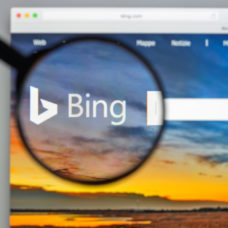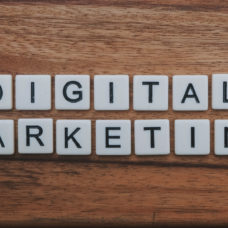If you want to have the best online marketing strategy possible you need to use both SEO and SEM. But first, you need to understand the main difference between the two.
SEO and SEM, what’s the difference?
Did you know that all tequila is mezcal but not all mezcal is tequila? Just like that, all SEO is SEM but not all SEM strategies include SEO. Of course, there are exceptions to this rule, but anyone who has told you that SEO and SEM mean the same thing is just plain wrong.
Search engine marketers constantly throw around SEO and SEM without really knowing what they are. This has created a lot of confusion between the two terms. When it comes to SEO and SEM, you need to be careful about what you listen to.
Needless to say, SEO and SEM can be confusing concepts to grasp. Here, we’ll define the terms and break down the key differences between them:
What are the key differences between SEO and SEM?
SEM:
SEM stands for Search Engine Marketing.
SEM aims to promote websites by improving their position in search engine results pages (SERPs). SEM is a general term that includes different online marketing tactics.
The confusion stems from the fact that SEM is often used to describe one particular digital marketing tactic. Just to confuse things, it has become the norm to use SEM to refer exclusively to paid searches.
When used in this way, the main difference between SEO and SEM is that SEM targets paid traffic. That means SEM is concerned with both optimization and advertising.
An example of SEM is when a business uses paid advertisements that appear on SERPs. This is usually done by bidding on keywords that people might search for on Google. If your bid is successful, Google will allow your site or ad to appear with the usual ‘organic’ search results.
SEO:
SEO stands for Search Engine Optimization.
SEO could be described as a branch of SEM or even SEM’s handyman, if you like. SEO is all about bringing organic traffic to your site. Organic traffic is any traffic that comes from natural, free searches put into search engines.
For example, say you produce a blog post about building backlinks for your website. If someone were to access Google.com and search for “How to build links”, they’d be shown the top ranking sites for that search result. If that searcher were to click your link, it would be an example of organic traffic.
Read More: How to use Keywords and Backlinks to Create a Solid Link-Building Strategy
The best SEO marketers are able to master these things:
- knowing what makes a searcher choose a given search result, and
- how to make their website rank in search results.
In effect, SEO is a balancing act between understanding people and knowing how search engines work.
Although SEO and SEM describe different categories of search engine manipulation, they rely on each other to work fully. You’ve probably come across arguments that claim SEO is more effective than SEM or vice versa. The truth is, they work best together.
High-quality SEO is a key ingredient of the recipe for SEM success.
Once you understand the differences between SEO and SEM, you can create an online marketing strategy that is way more effective.
Got the SEO and SEM basics down? Great, time to get into the nitty-gritty details. Read on to find out everything you need to know about SEO and SEM.
Read More: 7 SEO Mistakes You Should Avoid
What does Search Engine Optimization (SEO) Consist of?
SEO is usually defined as: “a methodology of strategies, techniques and tactics used to increase the number of visitors to a website by obtaining a high-ranking placement in the search results page of a search engine (SERP) — including Google, Bing, Yahoo and other search engines”.
In the digital age, every business should invest in SEO. The Internet is the most efficient and powerful marketing tool available to us.
In fact, 89 percent of consumers use search engines to help make their purchasing decisions. Why would you not want to milk this opportunity for all it’s worth?
Search Engine rankings are extremely important. If you produce web pages that are optimized you will attract more targeted traffic. Organic traffic usually correlates to high visitor-to-customer conversion rates
I am a firm believer that any business with a website can benefit from SEO. However, SEO is crucial for small businesses and startups, software-as-a-service companies, locally exclusive businesses, niche companies, restaurants and bars, and medical or legal professionals.
It’s simple. Where do people find reviews, information, and services? They google it.
Your competitors are likely to be investing time and effort into SEO. This could be the reason why they are outranking you and perhaps outselling you. This can be prevented by implementing your own SEO strategy.
But how do you use SEO to drive traffic to your website?
Effective SEO tactics can be broken down into on-page SEO and off-page SEO. On-page SEO aims to optimize your content so that it can get maximum visibility in SERPs. Off-page SEO aims to gain backlinks from other websites to increase your domain authority. Domain authority is essentially a measurement of how reliable and useful your website is to visitors.
Here’s a short list of On-Page SEO tactics:
- Carry out keyword research so your content matches what people are looking for. You can incorporate keywords naturally so they fit into headers, title tags, image alt text and meta descriptions.
- Only publish high-quality blog posts and page copy. Everything you publish should be a useful source of information to your target audience.
- Clean and well-formatted page URL slugs and sitemaps.
- Improve the load speed of all pages–make sure it loads quickly on both desktop and mobile devices.
- Make your content shareable by integrating social media. Social sharing integration within your content is vital.
You can also use these Off-Page SEO tactics:
- Create a strong link-building strategy to get backlinks from other authoritative sites.
- Attract attention from social sites like Reddit and Stumbleupon via social bookmarking.
- Increase traffic by promoting your content on social media.
- Make the most of influencer marketing.
What Does Search Engine Marketing (SEM) Consist of?
SEM is defined as: “a type of Internet marketing associated with the researching, submitting and positioning of a website within search engines to achieve maximum visibility and increase your share of paid and/or organic traffic referrals from search engines.(in comparison to SEO) SEM helps you successfully target users of search engines via advertising (paid) links in search results in addition to organic search to send targeted traffic to your website”.
As we discussed above, SEM includes using paid search initiatives. These range from paid advertisements pay per click (PPC) listings and cost-per-click (CPC) ads to editorial content initiatives.
A major benefit of PPC advertising is that you can use relevant copy and keywords to target the intent behind target customers searches. PPC ads appear in SERPs along with organic listings. This position means PPC ads are efficient multitaskers. They can increase the visibility of your website exponentially.
Another bonus of PPC advertising is that you only pay when it works. The PPC payment structure means you only have to pay if someone clicks your ad. In other words, you only pay when you get the results you want.
The most effective place to set up paid ads is on the most popular search engines. Google Adwords allows you to set up ads that will appear in Google searches. Similarly, Bing Ads lets you do the same on Bing.
However, Google is by far the most popular platform used for hosting ads.
Whichever route you decide to take your SEM campaign in, you should keep the following actions in mind for successful SEM:
- Make your ad copy as relevant as possible and always include target keywords.
- Create ad groups so you can maximize target keywords by creating different variations.
- Only launch an ad campaign that clearly targets a specific audience. Think specific location or age demographic.
- Always monitor metrics. Record clicks, average CPC, and click-through rates. This will show you how effective your campaign is and help you to determine if it is worth it or not.
- Never launch a paid ad campaign without setting a budget and outlining a strategy beforehand.
Read More: Why Most Paid Ads Fail
Organic SEO vs. Paid SEM Strategies
So out of SEO and SEM, which is the better marketing strategy? In my opinion, neither is better or worse. They are inherently linked. In most cases, SEO is a part of your SEM strategy. But, if your SEM strategy is merely to pay for traffic, you’re not taking advantage of the free boosts SEO techniques can bring.
However, for smaller businesses, budgets are limited. You can either charge an employee to learn SEO and use it effectively, or you can simply employ a pay-for-traffic SEM strategy. Whichever you choose really depends on your individual situation.
When weighing up your options, you should consider the disadvantages of SEO and SEM.
While SEM Paid Search tactics will give you instant results, the benefits of SEO take longer to show. That said, SEO establishes your site’s credibility in organic search results.
You should also consider that SEM guarantees visibility. Increased visibility allows you to raise awareness and get your brand out there.
Read More: Is Your Organic Traffic Dropping? Here’s How to Find Out Why
A key determining factor is that SEO is inexpensive compared to SEM. Also, when you compare the results of SEO and SEM, SEO really pays off in the long run. The longterm results of SEO are usually more impressive and work out less expensive than SEM.
A major benefit of SEO is that it covers more bases than SEM. SEO drives search, referral, and social traffic.
After direct traffic (usually from repeat visits or regular purchases) search traffic is the second major source of traffic for e-commerce sites. It is responsible for 32% of overall monthly traffic. That means almost a third of visitors find sites through organic searches.
Referral traffic is made up of visitors who access your site via external links. As the third most important source of traffic, it brings in 8.3% of total web traffic. Big names like Amazon, Apple, and Walmart use referral traffic to their advantage. For example, Amazon often directs visitors to Walmart, which accounts for 3% of the company’s traffic.
So taking everything into consideration, if you urgently need results and have the budget, SEM is the way to go. However, if you can be patient, SEO can really pay off as the better option.
As an online marketer, SEO and SEM are two vital tools to have in your back pocket.



















E-commerce and SEO training
. How to create an e-commerce site in Shopify
. How to list your products on 150+ national and international sites like eBay, Amazon, etc….
. SEO for your e-commerce site
. SEO for your e-commerce platforms listings
. How to sell through social media like FB, Instagram,
. Dropshipping techniques and solution
. How to sell your products through post’s
. Learn affiliate marketing
Black hat AdWords techniques
Mssionline.com
Learn black hat white hat gray hat seo generate your own calls in free no issue if your website, post rank or not you get calls complete seo calls solutions
Indexing solutions
Ranking solutions
Lead or calls solutions
Fees 8000
Demo free
Pay in two part ping me
mssionline.com